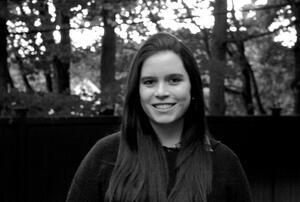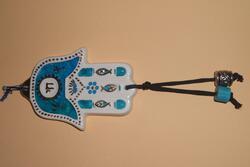Where Do I Stand?
My mother is Jewish and my father is not. As a very active member of the Jewish community who just begun her twelfth year of formal Jewish education, I do not consider myself interfaith. I am Jewish through and through. As confident as I am about my identity as a Jew and my place in the Jewish community, I am insecure about my role in the feminist community. Having only recently begun identifying as a feminist, I find myself nervous and apprehensive to speak up in discussions about gender norms, though I have well formulated and thought out opinions. As my identity as a feminist evolves and progresses, I have come to find that it conflicts more and more with my identity as an observant Jewish woman.
I have not always been as passionate about my Judaism as I am today. After spending the summer on an intensive hiking program in Israel, I have a newfound sense of gratitude and appreciation for my Jewish heritage, community and education. As a result, I have decided to delve deeper into my traditional Jewish learning and plan on spending the year after high school learning at an all women’s seminary. However, as I become more and more familiar with Jewish liturgy, I have been exposed to a raw, harsh truth: Judaism is a traditionally male dominated (and often misogynistic) religion in which women are seen as second-class citizens.
When I daven (pray) in very traditional minyanim (prayer groups) and I hear men thanking God for not being born women, I find myself looking around at the women around me in disgust, trying to find similar reactions. How could these men whom we call our fathers, brothers, and friends think so little of us? Yet every time I flip through a siddur and find the ancient liturgical texts of the Amidah edited to include our foremothers, I cringe. If G-d had wanted Sarah, Rachel, Rivkah, and Leah to be included in this blessing, they would have been from the start! The inconsistencies go on and on. I don’t think women should wear tfillin (phylacteries) (As the Rabbis always say, we have other important mitzvoth to fulfill that men are unable to do, like childbearing) but one of the women I look up to most is the pulpit rabbi at my parents’ synagogue.
So where do I stand? I don’t know. I am not comfortable davening in a strict mechitza minyan because my presence is not valued because of my gender, however I am also not comfortable davening in a liberal minyan because I feel as though they often do not pay the proper respects to our ancient traditions by editing them so vastly. However, I have been very lucky. I recently found a place to pray in which there is a Mechitza, but men and women can participate equally.
As a child, many of the reasons I found myself disliking traditional prayer was because I didn’t know the reasoning behind many of the halakhot, Jewish laws. This is also part of why I am so drawn to text based traditional Jewish learning now, as it has opened my eyes to so many different things. For instance, as I now know, one of the reasons that the mechitza was implemented in synagogues was because men and women are often distracted by the opposite sex. As a hormonal teenager, I can strongly attest to this and believe it is imperative, at least for me, to have separate seating in order to maximize my spiritual experience. Not because men are better than women or women are better than men—simply so that we can all have the Jewish spiritual experience many of us long for in our daily lives.
This piece was written as part of JWA’s Rising Voices Fellowship.







